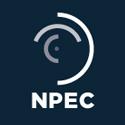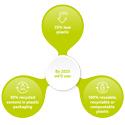CORPORATE ACTION: Coca-Cola
Coca-Cola’s Environmental Policy Leader Outlines The Company’s ‘World Without Waste’ Strategy
 Dr. Ben Jordan, senior director of environmental policy for Coca-Cola, says the company is progressing its aim to reduce its impact on the environment. Speaking at an event in Kuala Lumpur, he outlined Coca-Cola’s ‘World Without Waste’ vision, to eliminate packaging waste and address the issue of marine debris. Jordan says the company has since August 2017 had a team of over 30 globally working on the program, which comprises three pillars: Design, Collect and Partner. Coca-Cola aims to use only 100% recyclable packaging by 2025. It also aims to make sure the consumer does recycle the packaging, and stresses the need to work with partners, like bottlers and NGOs, to make sure it happens. [Image Credit: © Andrew Martin from Pixabay]
Dr. Ben Jordan, senior director of environmental policy for Coca-Cola, says the company is progressing its aim to reduce its impact on the environment. Speaking at an event in Kuala Lumpur, he outlined Coca-Cola’s ‘World Without Waste’ vision, to eliminate packaging waste and address the issue of marine debris. Jordan says the company has since August 2017 had a team of over 30 globally working on the program, which comprises three pillars: Design, Collect and Partner. Coca-Cola aims to use only 100% recyclable packaging by 2025. It also aims to make sure the consumer does recycle the packaging, and stresses the need to work with partners, like bottlers and NGOs, to make sure it happens. [Image Credit: © Andrew Martin from Pixabay]
CORPORATE ACTION: Kao
Kao Is Stepping Up Its Battle Against Plastic Packaging
 Global consumer goods company Kao has launched Smart Holder, allowing consumers to use refill packages and reduce the amount of packaging it uses. Eighty per cent of Kao’s personal care and household products are now in refillable packs, reducing plastic waste sold in Japan by 74% for those products. Innovations include the ‘bottle-like pouch’ (BLP) refills, designed to be easy to use (or “raku raku” in Japanese, translated as “so easy”). It has also been working to reduce packaging by innovating the products, such as developing the first super-concentrated liquid detergent in the world. In the US, Kao is to partner with How2Recycle on adding easy-to-understand recycling labels on packaging. The company is also working on a number of other plastics initiatives back in Japan, to raise consumer awareness and involvement in recycling plastics, such as encouraging residents of Kamakura to deposit empty refill pouches, which were converted into blocks to build a life-size model of a popular local train, displayed in front of city hall.
Global consumer goods company Kao has launched Smart Holder, allowing consumers to use refill packages and reduce the amount of packaging it uses. Eighty per cent of Kao’s personal care and household products are now in refillable packs, reducing plastic waste sold in Japan by 74% for those products. Innovations include the ‘bottle-like pouch’ (BLP) refills, designed to be easy to use (or “raku raku” in Japanese, translated as “so easy”). It has also been working to reduce packaging by innovating the products, such as developing the first super-concentrated liquid detergent in the world. In the US, Kao is to partner with How2Recycle on adding easy-to-understand recycling labels on packaging. The company is also working on a number of other plastics initiatives back in Japan, to raise consumer awareness and involvement in recycling plastics, such as encouraging residents of Kamakura to deposit empty refill pouches, which were converted into blocks to build a life-size model of a popular local train, displayed in front of city hall.
CORPORATE ACTION: PepsiCo
PepsiCo Strengthens Its Commitment To Using Recycled Material In Packaging
 PepsiCo has pledged to use 25 per cent recycled content in plastic packaging by 2025, building on its 2016 ‘Performance with Purpose’ sustainability initiative that aims to make 100 per cent of its packaging recyclable, biodegradable or compostable by 2025. The company says that its work with partners will ensure PET beverage bottles will incorporate 33 per cent recycled PET material by 2025. In the EU, it is aiming for a 50% target. The new target also builds on its commitment to Ellen MacArthur Foundation’s New Plastic Economy initiative. PepsiCo has also announced it had entered a multi-year supply agreement with Loop Industries, Inc., which develops sustainable plastic. PepsiCo will start to use Loop™ PET plastic, which contains 100 per cent recycled material, in its product packaging by early 2020. [Image Credit: © New Plastics Economy]
PepsiCo has pledged to use 25 per cent recycled content in plastic packaging by 2025, building on its 2016 ‘Performance with Purpose’ sustainability initiative that aims to make 100 per cent of its packaging recyclable, biodegradable or compostable by 2025. The company says that its work with partners will ensure PET beverage bottles will incorporate 33 per cent recycled PET material by 2025. In the EU, it is aiming for a 50% target. The new target also builds on its commitment to Ellen MacArthur Foundation’s New Plastic Economy initiative. PepsiCo has also announced it had entered a multi-year supply agreement with Loop Industries, Inc., which develops sustainable plastic. PepsiCo will start to use Loop™ PET plastic, which contains 100 per cent recycled material, in its product packaging by early 2020. [Image Credit: © New Plastics Economy]
CORPORATE ACTION: Other
Sodexo’s North American Unit Is To Cut Single-Use Plastic Dramatically
.jpg&width=125&height=93) Sodexo North America plans to significantly reduce single-use plastics. The food service company’s North American Single-Use Plastics Reduction Plan targets the end of 2019 to stop using single-use plastic bags and stirrers, with 2025 the cut-off date for expanded polystyrene packaging. The company has stopped short of committing to complete elimination of single-use plastic. It will adopt a "by request" policy for plastic drinking straws, for example. John Hocevar, Greenpeace Oceans Campaign Director, applauded Sodexo's initiative but urged other food service companies, such as Sysco and Compass Group, to act on reducing single-use plastics. [Image Credit: © Sodexo 2016]
Sodexo North America plans to significantly reduce single-use plastics. The food service company’s North American Single-Use Plastics Reduction Plan targets the end of 2019 to stop using single-use plastic bags and stirrers, with 2025 the cut-off date for expanded polystyrene packaging. The company has stopped short of committing to complete elimination of single-use plastic. It will adopt a "by request" policy for plastic drinking straws, for example. John Hocevar, Greenpeace Oceans Campaign Director, applauded Sodexo's initiative but urged other food service companies, such as Sysco and Compass Group, to act on reducing single-use plastics. [Image Credit: © Sodexo 2016]
Snap Kitchen Shifts To Eco-Friendly Food Trays

US fresh food retailer Snap Kitchen has introduced compostable packaging materials in 35 locations. It expects to cut its use of plastic by 227 tonnes annually. It has partnered with World Centric, which manufactures compostable products. Snap Kitchen said that the eco-friendly packaging uses much less energy: five of the new trays can be produced using the same amount of energy as one petroleum-based plastic tray. The packaging is microwave- and oven-safe.[Image Credit: © Snap Kitchen, LLC.]
Frozen Meal Maker In The UK Shifts To Cardboard Trays
New Plastics Promise Launched By PZ Cussons

PZ Cussons has introduced new targets for single-use plastic by 2025. Its Plastic Promise commits the company to reducing by 25 per cent the amount of plastic it uses. It is also aiming for 100% of the plastic uses to be reusable, recyclable or compostable, and its plastic packaging will contain 30% recycled material. The company has already eliminated single-use plastics from its Manchester, UK headquarters.[Image Credit: © PZ Cussons]
Waitrose Has Accelerated Its Work To Eradicate Single-Use Plastic In Own-Label Packaging

Upmarket UK grocery retailer Waitrose has accelerated its commitment to making own-brand packaging more recyclable, reusable or compostable, bringing forward its 100 per cent target from 2015 to 2023. It has hit the 70 per cent level already and expects to reach 80 per cent by 2020. It says it is also close to taking all its own-label fruit, vegetables, meat and fish out of black plastic by the end of 2018, and will stop selling its own-label products in black plastic after the end of next year. [Image Credit: © Waitrose]
CAMPAIGNS, COMMITMENTS & NGOs
Global Companies Join The New Plastics Economy Global Commitment
 Nearly 300 organizations have has joined a global initiative to eliminate plastic waste. The New Plastics Economy Global Commitment signatories include recycling companies, packaging producers and retailers. It was announced at the Ellen MacArthur Foundation’s 'Our Ocean' conference in Bali, and was launched in collaboration with UN Environment. The initiative has three main aims: eradicate unnecessary plastic and move away from single-use packaging; work towards 100% reusable, recyclable or compostable plastic packaging by 2025; and to circulate plastic by increasing the volume of plastics that can be converted into new products or packaging. CPG companies that have signed up include Johnson & Johnson, SC Johnson, Danone, L’Oréal, Mars, PepsiCo, Unilever and Coca-Cola. Other signatories include Walmart, Target, Carrefour, Metro AG, Lidl, Ahold Delhaize, H&M, Amcor and Novamont. [Image Credit: © New Plastics Economy]
Nearly 300 organizations have has joined a global initiative to eliminate plastic waste. The New Plastics Economy Global Commitment signatories include recycling companies, packaging producers and retailers. It was announced at the Ellen MacArthur Foundation’s 'Our Ocean' conference in Bali, and was launched in collaboration with UN Environment. The initiative has three main aims: eradicate unnecessary plastic and move away from single-use packaging; work towards 100% reusable, recyclable or compostable plastic packaging by 2025; and to circulate plastic by increasing the volume of plastics that can be converted into new products or packaging. CPG companies that have signed up include Johnson & Johnson, SC Johnson, Danone, L’Oréal, Mars, PepsiCo, Unilever and Coca-Cola. Other signatories include Walmart, Target, Carrefour, Metro AG, Lidl, Ahold Delhaize, H&M, Amcor and Novamont. [Image Credit: © New Plastics Economy]
New Milestone Targets For The UK Plastics Pact
 Campaign group Wrap has issued targets for plastic waste reduction by businesses in the UK. Its ‘roadmap’ sets stage targets for April 2019 and end-2022, towards the end date of 2025. Signatories to the UK Plastics Pact have committed to making 100 per cent of plastic packaging either reusable, recyclable or compostable. The roadmap also sets milestones for other goals, including developing ways to address non-recyclable materials. Wrap’s CEO said he was impressed with the progress business has made since the Pact was launched in April, but added that consumers have a role and responsibility too.[Image Credit: © Waste and Resources Action Programme]
Campaign group Wrap has issued targets for plastic waste reduction by businesses in the UK. Its ‘roadmap’ sets stage targets for April 2019 and end-2022, towards the end date of 2025. Signatories to the UK Plastics Pact have committed to making 100 per cent of plastic packaging either reusable, recyclable or compostable. The roadmap also sets milestones for other goals, including developing ways to address non-recyclable materials. Wrap’s CEO said he was impressed with the progress business has made since the Pact was launched in April, but added that consumers have a role and responsibility too.[Image Credit: © Waste and Resources Action Programme]
ALLIANCES, PARTNERSHIPS & JVs
Two Global Companies Partner To Develop Plastics Recycling Technologies
 Unilever is teaming up with Veolia, a waste management company, to develop technology to increase plastics recycling. The partnership will first focus on India and Indonesia, on collecting and recycling waste and re-using recycled material. As a founding member of the UK Plastics Pact, Unilever is also working on the Pact’s 2025 targets, such as ensuring 70 per cent of all packaging is either recycled or reprocessed, and that all packaging has 30 per cent recycled content. Veolia, in partnership with RECOUP, a plastics recycler, produced a study that found consumers might pay extra more to increase the amount of their products that contain recycled material. It also found, however, that the infrastructure required to achieve this in the UK needs to be improved considerably. [Image Credit: © tkremmel from Pixabay]
Unilever is teaming up with Veolia, a waste management company, to develop technology to increase plastics recycling. The partnership will first focus on India and Indonesia, on collecting and recycling waste and re-using recycled material. As a founding member of the UK Plastics Pact, Unilever is also working on the Pact’s 2025 targets, such as ensuring 70 per cent of all packaging is either recycled or reprocessed, and that all packaging has 30 per cent recycled content. Veolia, in partnership with RECOUP, a plastics recycler, produced a study that found consumers might pay extra more to increase the amount of their products that contain recycled material. It also found, however, that the infrastructure required to achieve this in the UK needs to be improved considerably. [Image Credit: © tkremmel from Pixabay]
POLICY, REGULATION & LEGAL
Global Drinks Makers Seek To Dilute EU Plastics Legislation
 Some large beverage companies are reportedly trying to limit European Union legislation on plastics reduction. A letter signed by Danone, Coca-Cola, Nestlé and PepsiCo urges EU states to postpone proposals that would force companies to ensure bottle caps can’t be detached. The EU is considering plans for tethered caps to be mandatory by 2025. The four signatories of the leaked letter counter-propose a commitment to recycle 90 per cent of plastic bottles by 2025. Some of these companies have been identified as the heaviest contributors to plastic pollution. The companies argue that tethered caps shouldn’t be compulsory unless 2021 recycling targets aren’t met, but critics say the EU’s aims aren’t difficult to achieve and the companies are just using classic delaying tactics. [Image Credit: © goranmx from Pixabay]
Some large beverage companies are reportedly trying to limit European Union legislation on plastics reduction. A letter signed by Danone, Coca-Cola, Nestlé and PepsiCo urges EU states to postpone proposals that would force companies to ensure bottle caps can’t be detached. The EU is considering plans for tethered caps to be mandatory by 2025. The four signatories of the leaked letter counter-propose a commitment to recycle 90 per cent of plastic bottles by 2025. Some of these companies have been identified as the heaviest contributors to plastic pollution. The companies argue that tethered caps shouldn’t be compulsory unless 2021 recycling targets aren’t met, but critics say the EU’s aims aren’t difficult to achieve and the companies are just using classic delaying tactics. [Image Credit: © goranmx from Pixabay]
INNOVATION & TECHNOLOGY
Loliware Introduces Edible Straws Made From Seaweed
 As pressure intensifies on single-use plastics, one bioplastics company claims to have the answer to eliminating plastic straws. Loliware has developed the LOLISTRAW, made from a bio-degradable and marine-degradable material sourced from seaweed. They come in different colors, last for a day in a beverage, become soil in around 60 days, and are edible - flavors include “citrus” and “vanilla dust”. One variant – “air” – is clear and has no flavor. The straws follow the company’s edible cups, which it pitched to the Shark Tank reality investor TV program in the US in 2015.[Image Credit: © LOLIWARE]
As pressure intensifies on single-use plastics, one bioplastics company claims to have the answer to eliminating plastic straws. Loliware has developed the LOLISTRAW, made from a bio-degradable and marine-degradable material sourced from seaweed. They come in different colors, last for a day in a beverage, become soil in around 60 days, and are edible - flavors include “citrus” and “vanilla dust”. One variant – “air” – is clear and has no flavor. The straws follow the company’s edible cups, which it pitched to the Shark Tank reality investor TV program in the US in 2015.[Image Credit: © LOLIWARE]
EMERGING IDEAS, THEMES & TRENDS
City Travelers Swap Plastic Bottles For Bus Rides

The Indonesian city of Surabaya is encouraging residents to swap used plastic bottles for free bus journeys. Travelers can drop off their bottles at the terminal or on the bus. The local authority aims to be free of plastic waste by 2020. One bus has the capacity for 250kg of plastic daily. The caps and labels are removed before the bottles are auctioned to recycling plants, and any money raised is invested in the city’s transport system. The scheme has had a good response from residents. [Image Credit: © Adam Novak from Pixabay]

